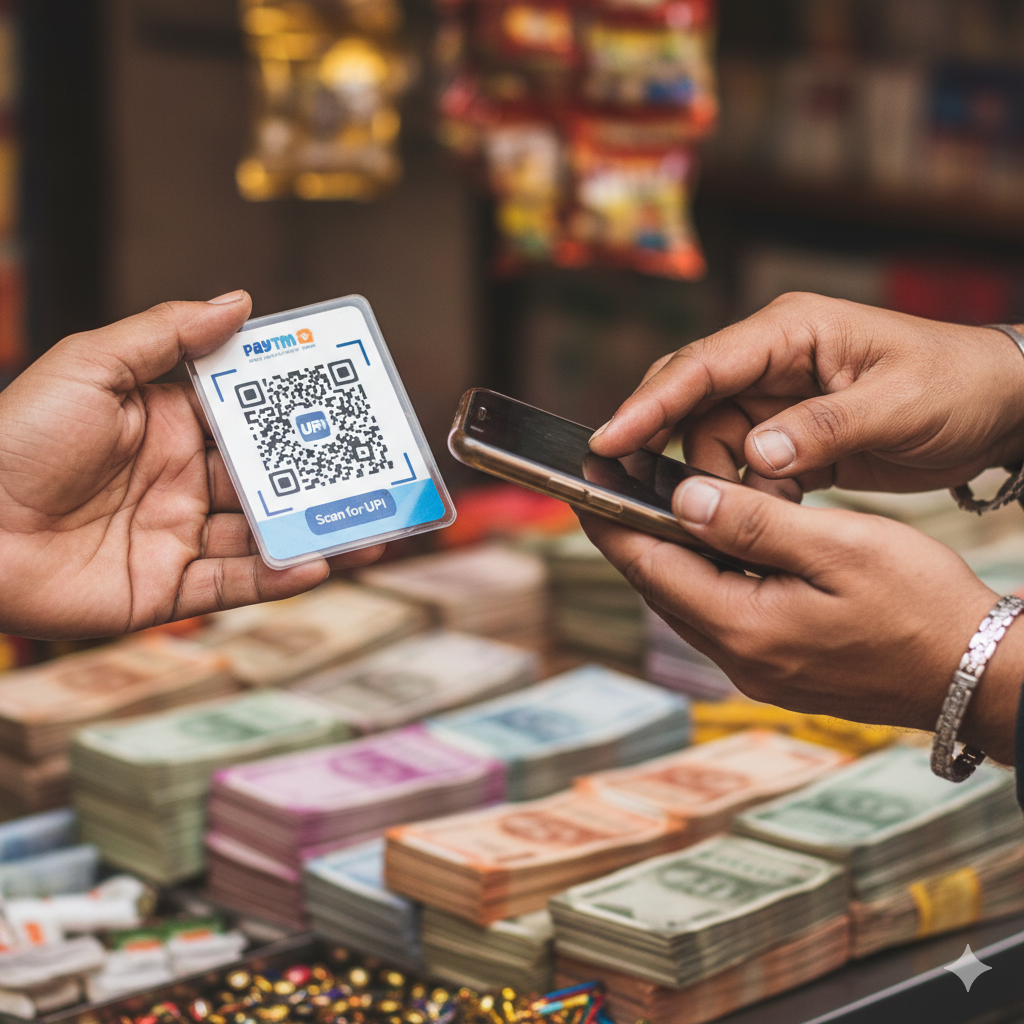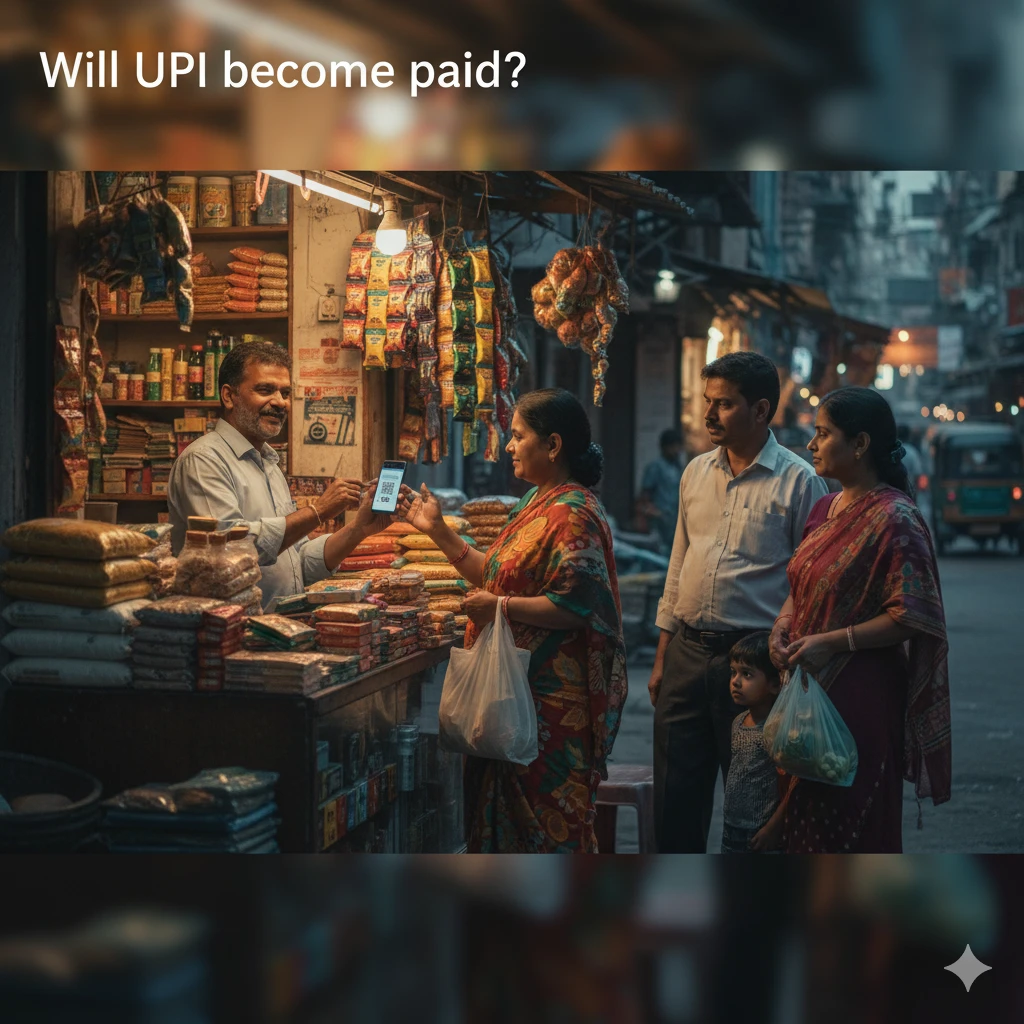Will there be UPI Transaction charges. You might be wondering will my everyday UPI payments for chai shop, rent, or sending money to a cousin suddenly cost me money? With news headlines and social media buzzing, it’s natural to feel worried. Good news first: the Reserve Bank of India (RBI) has clarified there is no current proposal to levy charges on UPI transactions for users. That means for now your P2P and usual UPI payments remain free.
Let’s break down what’s happening, why decision-makers are talking about costs, and practical steps you can take.

What’s the situation right now? (Short answer)
- No charge for regular users: RBI’s public clarification says there’s no proposal to charge retail users for UPI payments as of Oct 2025.
- Industry discussions about costs: Regulators and payment players have noted that running UPI has operating costs. There have been talks mostly about how to compensate banks, PSPs, or wallets not about directly charging everyday customers.
Why people worry about UPI charges
UPI handles billions of transactions monthly. More transactions mean more backend servers, fraud prevention, settlement systems and customer support but someone pays for that. NPCI issues periodic circulars to tweak rules and protect the system’s sustainability. Changes sometimes involve merchant-side fees (MDR/interchange) or wallet-loading rules which are not upfront charges for you sending money to your friend.
How charges if ever introduced could affect real people
Ravi, 35, banker in Mumbai: Ravi pays rent of ₹15,000 via UPI. If a merchant-like charge were applied to recurring payments, the extra could be a small monthly hit but RBI’s current stance keeps this hypothetical for now.
Amit, kirana shop owner in Borivali: Amit takes UPI payments for groceries. Many small merchants absorb tiny card/UPI fees today or negotiate with payment providers. If merchant charges increase, Amit may either raise prices slightly or offer a small cash discount both common outcomes.
Renu, freelance tutor: For occasional P2P transfers, nothing changes today. But if wallet-loading or PPI (Paytech) rules change, top-ups above certain amounts might see backend charges that affect platforms (and sometimes get passed to users).
Actionable tips — what you should do now
- Don’t panic; verify — rely on RBI / NPCI announcements and trusted newspapers (ET, Business Standard) rather than forwards. Business Standard+1
- For repeated merchant payments: ask your merchant how they accept UPI (bank-led or wallet). Wallet-based merchant collections sometimes involve different fee-sharing. Razorpay
- Negotiate as a small business: small merchants can compare PSPs (PhonePe for Business, Razorpay, Paytm for Business) for lower effective cost.
- Keep records: salaried individuals and taxpayers maintain transaction proof for tax deductions and reimbursements. UPI screenshots + bank SMS are handy.
- Diversify payment modes for large transfers: for high-value, infrequent transfers, consider NEFT/IMPS/RTGS depending on cost and urgency.
FAQs
1. Will I be charged for sending money to family via UPI?
Not today. RBI has said there’s no proposal to charge UPI users currently. Business Standard
2. Could shops start charging me for UPI payments?
Merchants may choose to adjust pricing if their costs rise but charging customers directly for UPI at the POS is currently rare and regulated.
3. Are wallets treated differently?
Yes. Wallet-loading and wallet-based merchant rules can include different interchange or service charges these are usually on the service provider side. Razorpay
4. How should small businesses prepare?
Track transaction costs, compare PSP plans, and consider modest pricing strategies (cash discounts or minimum purchase amounts) if fees change.
5. Where can I check official updates?
Watch RBI (rbi.org.in) and NPCI (npci.org.in) circulars and trusted business media like Business Standard and Economic Times.
Conclusion
For now, UPI remains free for regular users a huge convenience for salaried Indians, middle-class families, and everyday business. But the ecosystem is evolving. Keep an eye on official RBI/NPCI updates, ask your merchant or service provider about the type of UPI integration they use, and plan for small operational changes if fees are ever routed through merchant or wallet providers.
